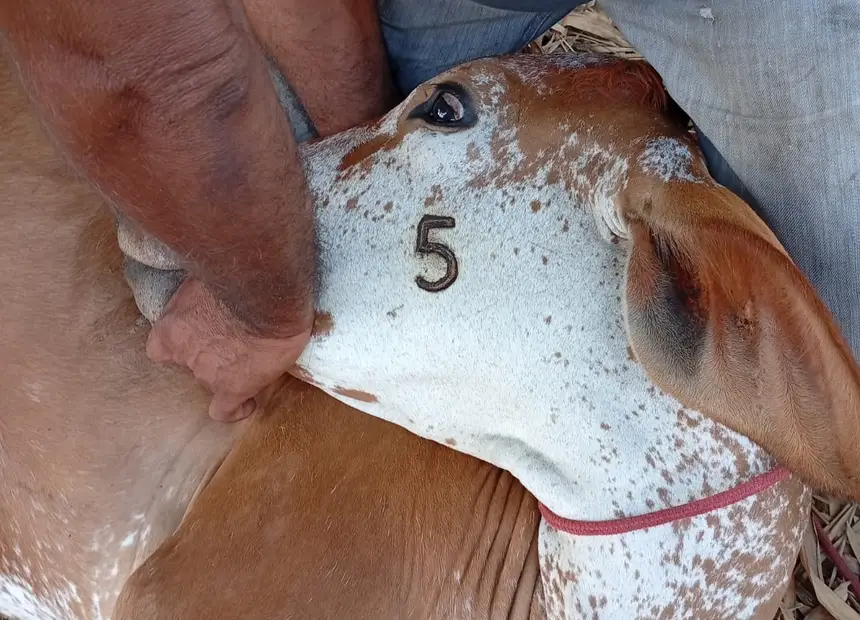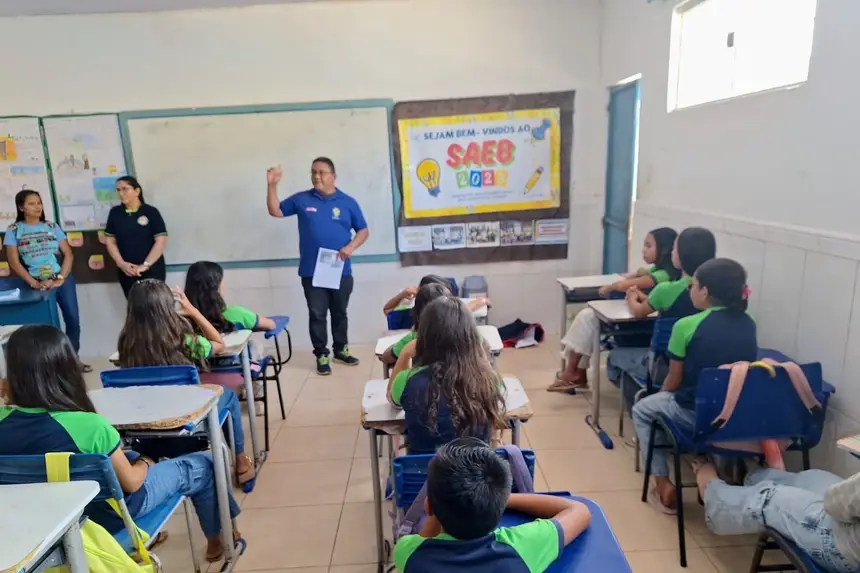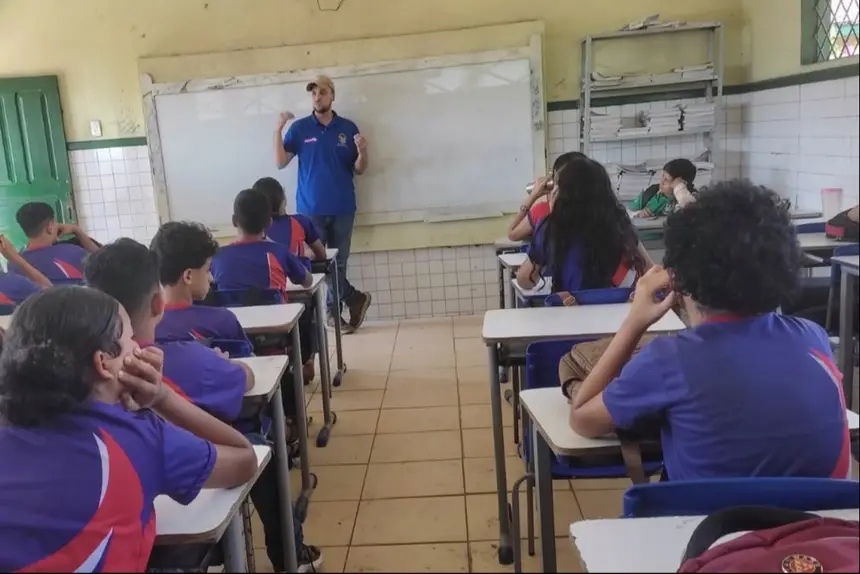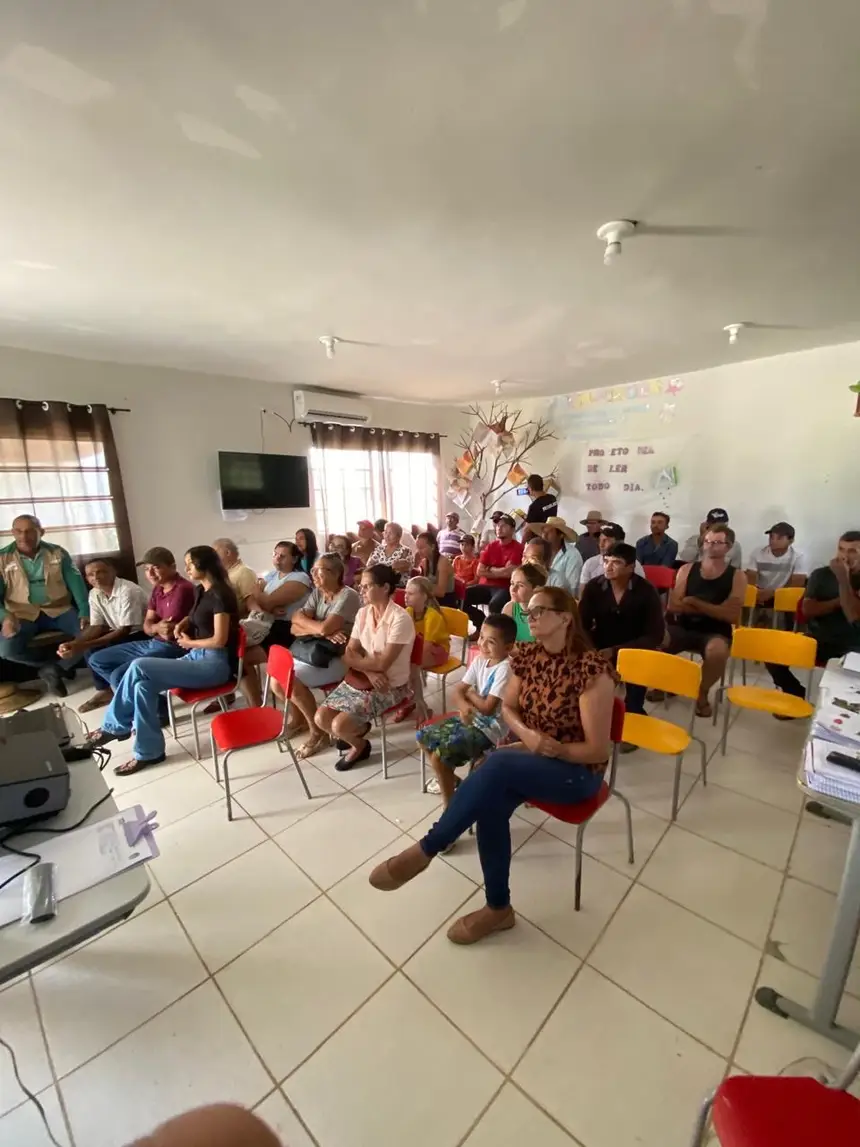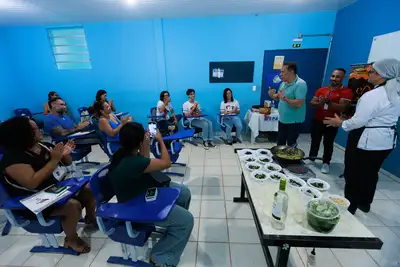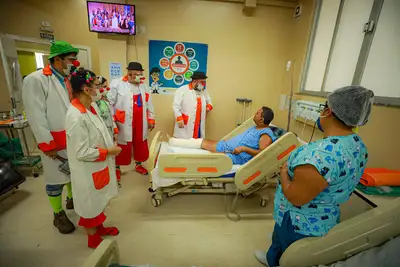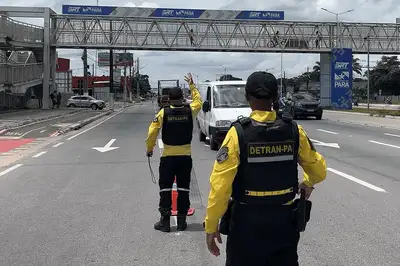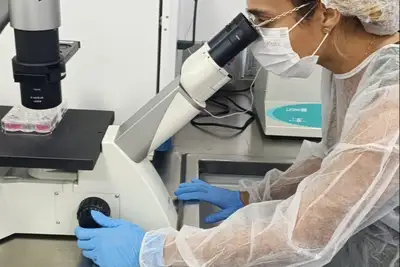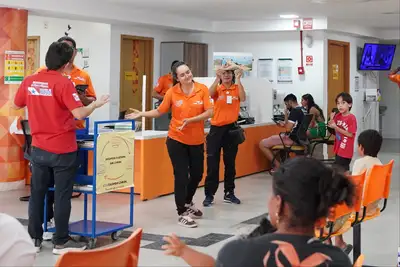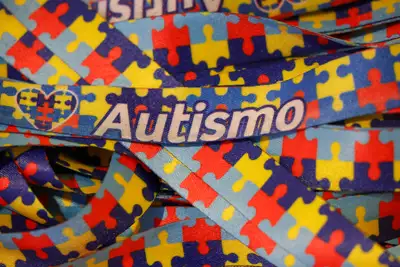ADEPARÁ intensifies the fight against brucellosis with educational actions and official vaccination in municipalities of Pará
State campaign includes lectures, field services, and reinforcement of mandatory vaccination of heifers until December 31
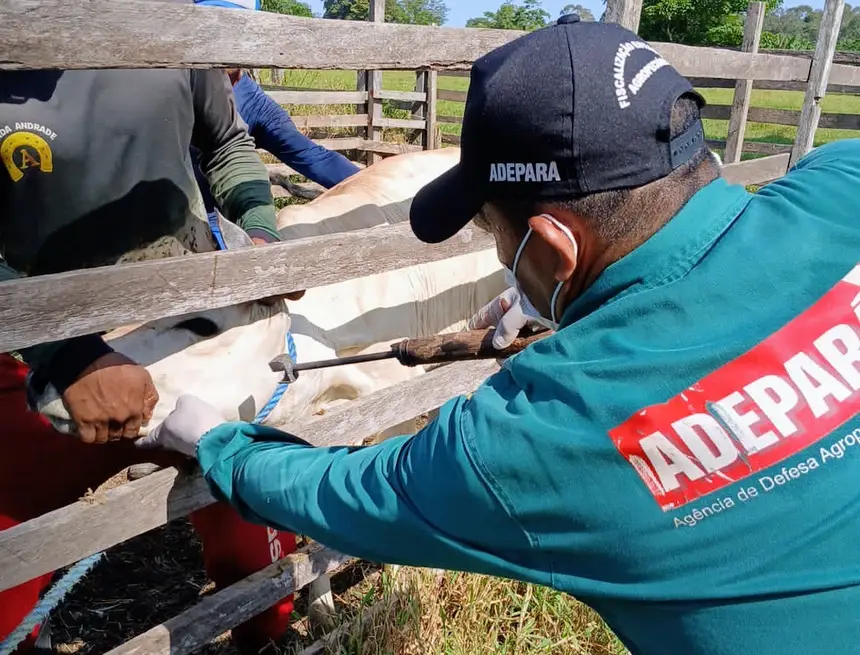
The Agricultural Defense Agency of the State of Pará (ADEPARÁ) promoted this week the "Day B against Brucellosis and Tuberculosis," with educational actions and the application of the official vaccine in various municipalities of the state. The initiative focuses on reinforcing the importance of mandatory vaccination of bovine and buffalo heifers between three and eight months of age, one of the main strategies to prevent brucellosis, a zoonosis that can also affect humans.
The campaign occurs in two annual phases. In the second phase, which continues until December 31, females that have not yet received the vaccine in the first semester must be immunized. Vaccination is mandatory and must be performed by professionals qualified by ADEPARÁ.
Among the main actions of Day B, a lecture was held for students of the Veterinary Medicine course at the University of the Amazon (Unama) in Belém. The activity was conducted by state agricultural inspectors from the State Program for the Eradication and Control of Brucellosis and Tuberculosis (PECBT), aiming to raise awareness among future professionals about the risks and prevention methods for the diseases.
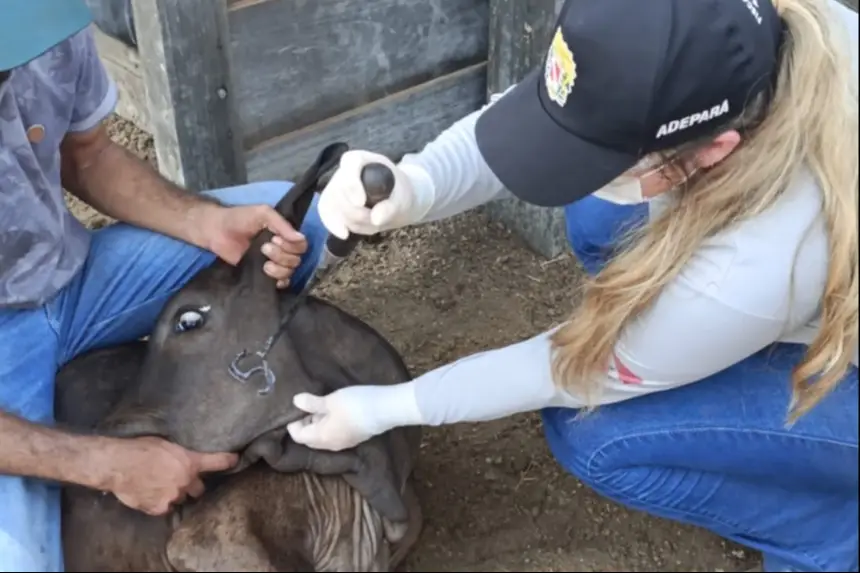
“Every year we hold the Day B for Brucellosis and Tuberculosis, which is nothing more than sanitary education. The goal is to raise awareness among professionals and rural producers to maintain the health of their herds, ensuring safe food and quality of life for the population,” highlighted Khrisna Tabosa, veterinarian at ADEPARÁ.
The manager of the PECB, veterinarian Luise Rattis, also emphasized the role of academia: “It is essential that future veterinarians understand the disease landscape in the State and how ADEPARÁ operates, so they become partners in prevention work as independent professionals.”
In addition to educational actions, the campaign brought the so-called “official needle” — vaccination administered by veterinarians from the official service — to farms with small herds. In Juruti, in the Lower Amazon region, 30 buffaloes and 48 heifers were vaccinated in areas such as Lago Grande, Paraná, and Ilha Santa Rita.
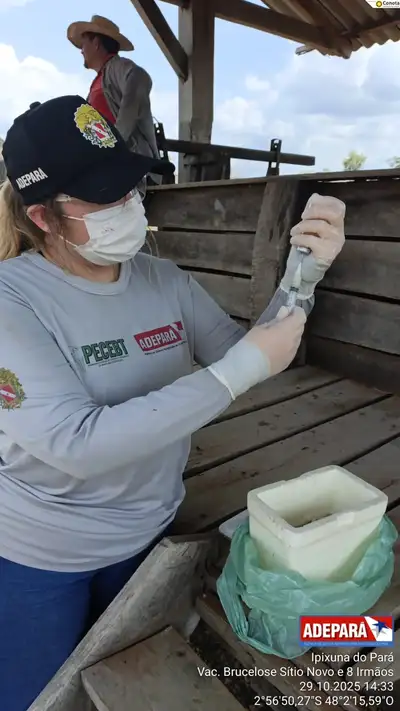
In the municipalities of Aurora do Pará (Rio Capim), São Francisco do Pará (Guamá), and Juruti (Lower Amazon), agricultural inspectors from ADEPARÁ carried out vaccinations directly on rural properties. The action aims to ensure vaccination coverage, especially in hard-to-reach areas.
In Novo Progresso (Tapajós), producers from the Santa Júlia and Nova Fronteira settlements participated in educational lectures. In Moju (Tocantins), the Professora Rosa do Socorro Carvalho School, in Vila Pirateua, received an awareness-raising activity about the disease. Students from Igarapé-Açu (Guamá) were also informed about the risks of brucellosis and animal tuberculosis.
Regional dissemination and mobilization
In Marabá (Carajás), the campaign was widely publicized on local radio stations, with interviews from ADEPARÁ's regional manager, Geraldo Jota, about prevention actions and the importance of herd immunization.
Diseases and prevention
Brucellosis is a serious and incurable zoonosis that can affect various species of mammals, including humans. Transmission occurs through contact with contaminated secretions or by consuming infected meat, milk, and dairy products.
Tuberculosis is also an infectious disease that affects domestic and wild animals as well as humans, being transmitted through contaminated bodily fluids and animal-derived products.
Prevention
Brucellosis: mandatory vaccination of female bovines and buffaloes between 3 and 8 months of age, performed once in the animal's lifetime.
Tuberculosis: testing of animals, conducted by veterinarians qualified by ADEPARÁ.
Service:
Vaccination against brucellosis
Deadline: until December 31, 2025
Producers should seek a qualified veterinarian or the local ADEPARÁ office to carry out the immunization of heifers that have not yet been vaccinated this year.


